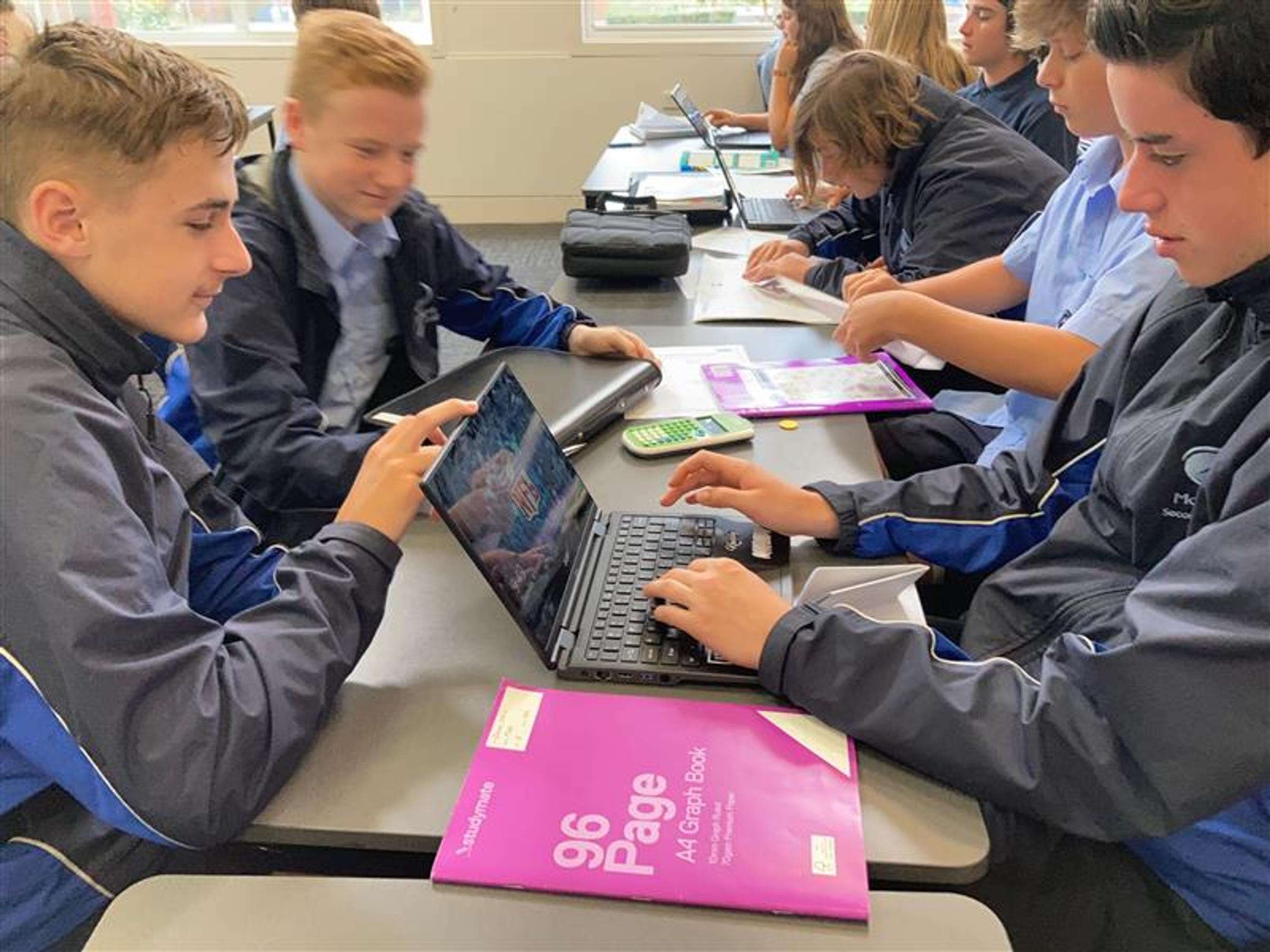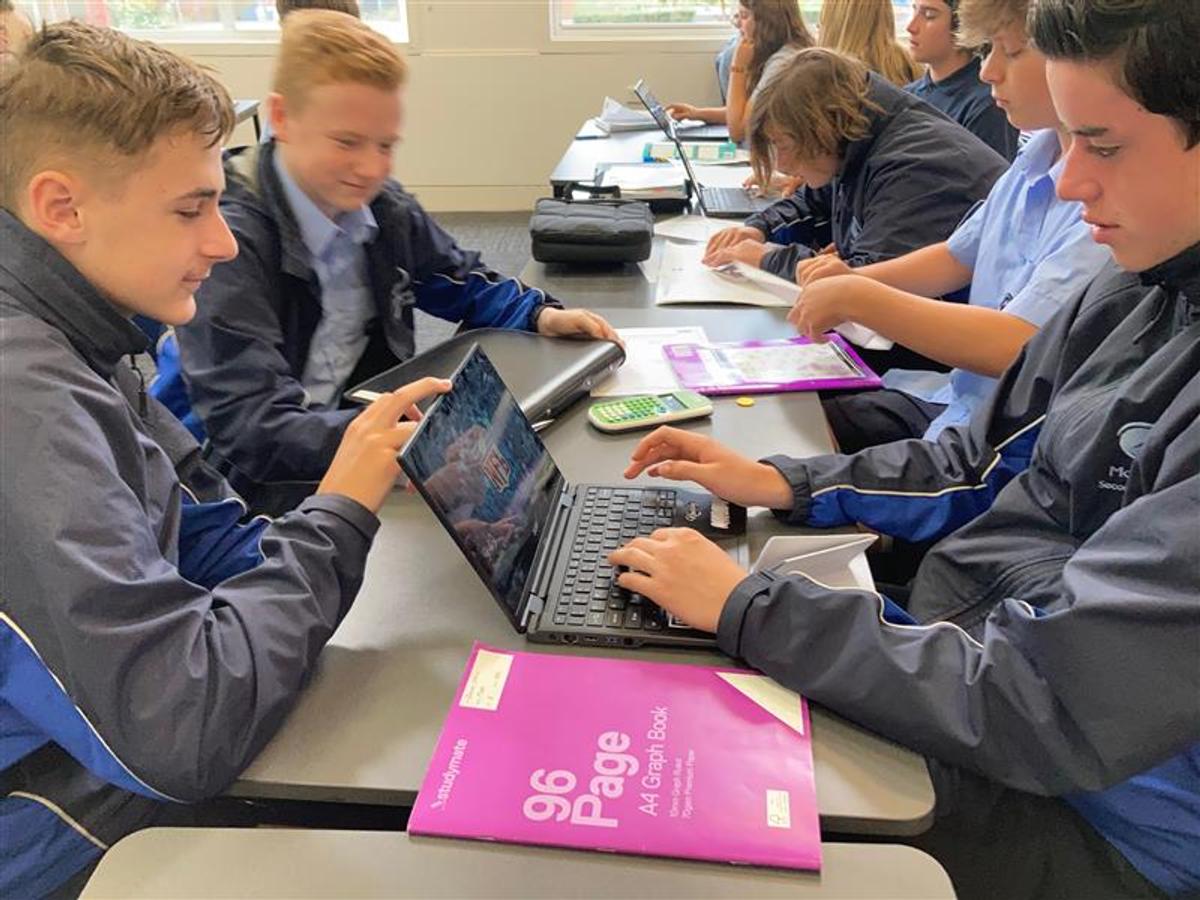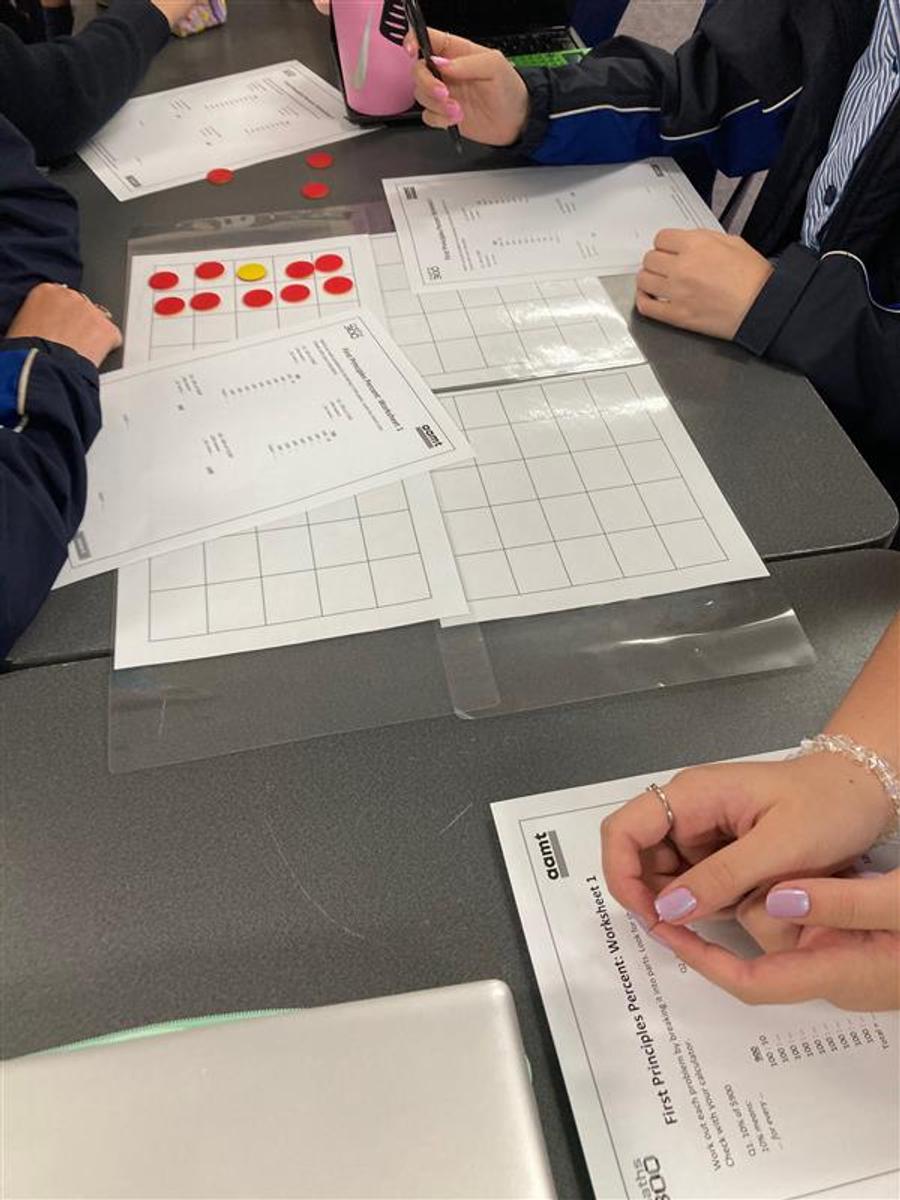Numeracy

Whole School Numeracy
Students and staff have been enjoying the hands-on activities we have been working on in Maths, from Year 7’s playing factors and multiples games to Year 10’s visualising expressions with Algebra Tiles. It has been great to see student’s get involved and enjoy the learning process.
The Maths Department have invested in some sensors and rovers to explore the M in STEAM (Science, Technology, Engineering, Arts & Mathematics). This equipment allows us to develop student’s Mathematical understanding across a range of topics, including coding mathematical algorithms, angles, distance/time graphs, linear equations, trigonometry and quadratics. Many students love to explore new technology, and have a go at coding angles to allow the rover to navigate around the craters of Mars or model their journey to school with a distance/time graph drawn in real time using the sensor.
The Maths team are working hard to fill in some of the gaps created by remote learning last year, with help from the tutors. We encourage parents at home to work with us to close the gaps in a quick and effective manner. Some of the ways you can help are:
- Encourage your child to attend Maths Club.
- Juniors (7-9) Tuesday and Thursday for in LC1.
- Seniors (10-12) Tuesday and Friday for in R6.
- Ensure all performance tasks, coursework and homework are completed
- Talk to your child about what they are doing in class, and the Maths you do at work or in your day to day experiences
Talk positively about Mathematics with a growth mindset.
If you have any concerns about your child’s progress or would like any information on how you can support their development please contact your child’s teacher.
Mrs Stacee Dobson
Maths KLA Leader
In the classroom
Year 9 students have been studying Financial Mathematics in class. In this lesson students were developing their understanding of percentages. A hands on activity was selected which offers opportunity for students to verbalise the principles behind a percent calculation. The lesson pivots on students discussing and justifying their calculations and, in their own time, developing short cuts.
From the beginning, calculators are used in partnership with the discussion to allow students to test their hypotheses in a non-threatening way. Our students were able to explore the concept of percentages and develop communication skills by designing a mini lesson to teach the concept to younger students. From here students moved on to complete problems of profit, discounts and tax, before completing an assignment on Buying a Car.
Mrs Dana Lamb
Mathematics Teacher
Supporting your Child at home - Developing a growth mindset.
Mindsets are our students’ beliefs about themselves and their capabilities. As a Maths faculty we strive to always make positive impacts on our students Mindsets by reflecting on and refining our interactions.
The importance of a growth mindset:
- A growth mindset allows young people to embrace failure and learn from it.
- A growth mindset is critical to adopting learning-oriented behaviour.
- Beliefs held by young people about learning and failure when they begin year 7 have a strong influence on their achievement over time.
- People who believe that effort matters respond with more positive, sophisticated strategies to tasks and increasing their learning as time goes on.
- Learning from failure causes substantial changes in the brain throughout life and is vital for resilience.
How to support a growth mindset:
- As parents, we can support a growth mindset in the way we speak to our children. Most importantly, be mindful that you praise and encourage effort, persistence, reasoning and use of problem solving strategies and not the product. Eg. 'That was a great idea to summarise what you know, that seemed to help you identify what was important'.
- Let them work it out. People learn, not so much by being told how to do something, as by working things out for themselves and linking new ideas to existing. Support your child by asking them questions, suggesting strategies (eg. drawing a picture, verbalising the problem, summarising key points, etc). Allow plenty of time for them to think. The greater the challenge that is overcome, the greater the intrinsic reward.
Misplaced well meaning – A caution.
We have all heard of, or perhaps we are guilty ourselves, of making comments such as 'I'm not a Maths person' or 'I was never good at Maths'. I'm sure these comments stem from a desire to sympathise and make the person feel less of a 'failure'. However, when we reflect on such comments, what they really say is that there exist two types of people in the world, those who are good at Maths and those who are bad at Maths. From here it is all too easy for our students to form a belief about themselves that stifles learning.
As adults and influential people in our students’ lives, we must promote Maths and the use of Maths as it is all around us in our homes, our workplaces and our civic life. More on this another time.
Looking forward:
Term 2:
Week 4&5 – NAPLAN Numeracy: The NAPLAN numeracy tests measure the achievement of students in numeracy. Students will complete the tests online as a series of multiple choice and constructed response items as well as a technology enhanced items. All students are expected to complete the test to the best of their ability.
Mr Matthew Mackinlay
Numeracy Leader


